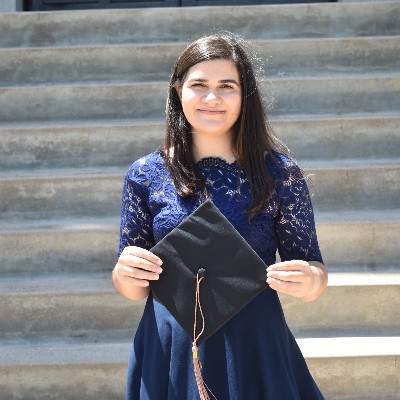Kukana ini
Kachi me matzanu ña kukana
kukana vasa yee nuu ntí’í,
anima ntachí nuu yùcha,
nuu anima kuaku ra kuaku
ra koo tsikuiin.
Koi tachi nakoo
ichi yu’u
ra tutsi ntaa.
Kukana lasu me ini
ke’e me sukú ra koo kunche kusu.
Stata kukana:
kuchi arnica chikui,
kuchi alcohol,
kuchi iín chikui,
na nuun na nikai
ntuchinuu,
ntaa
ra nchacha.
De la tristeza
Decía mi abuela que cuando la tristeza
parece no tener fin,
es probable que el alma se nos haya caído
en el río,
por eso llora y llora
y no puede detenerse.
Nos falta el aire,
la boca se nos seca
y las manos nos duelen.
Pareciera que la tristeza se nos ha trepado,
se nos agarra del cuello y dejamos de soñar.
Para curarla:
baños con agua de árnica,
baños con alcohol,
baños con agua salada
para que se nos deshinche el corazón,
los ojos,
las manos
y también las alas
Kue’e tachi
Yu’u kuaki’vi kue’e tachi,
kinuú tokó me ra ke’e me tsa’a.
Kumani savi.
Me pa kachi ñá’an koi iin má’na,
yee kutu’uu staa ra cafe
yee kutu’uu mee koi kachi.
Me pa kachi koo chaa ñá’an
mee nanalu kuaku koo ña’an,
nutsikaá ra yu’ú.
Vichi kachi me siví antivi,
mee saa ñá’an,
ntiki tsaa.
Tu’un me nchacha
me ñu’ú vixo.
Viento malo
Me entró por la boca el viento malo,
bajó por mis caderas y tocó mis pies.
Hace falta más lluvia.
Mi padre dice que las mujeres no soñamos,
que aprenda de tortillas y café
que aprenda a guardar silencio.
Dice que ninguna mujer escribe,
soy la niña que lloró la ausencia,
la lejanía y el miedo.
Hoy digo mi nombre en lo alto,
soy una mujer pájaro,
semilla que florece.
Las palabras son mis alas,
mi tierra mojada.
Ñá’an
Ixi xiniku chico xikui, telimu ra cafe,
tokoku yucha ku’na ichi
nuu ncha’í, ntaa.
Nuni chico ntuchinuu
yó’ó vixo ñu’ú, savi, nikanchii ra tachi.
Ñá’an ntuxi xachí, sata yutu ntakui,
víkò nuxaxa, antivi sesi’i.
Kachi ñá’an tu’un,
ra kuntukú ntaa-yo’o
ra nuxaxaku vichi vixo.
Koo kuntukú ntúú,
vichi kusuyu nuu ñu’un yu’uku,
ncho’o ñá’an.
Mujer
Tu cabello huele a leche, telimón y café,
tus caderas son ríos que abren caminos
hacia lo desconocido, lo verdadero.
Olor a maíz tienes en los ojos,
eres tierra mojada, lluvia, sol y viento.
Mujer sexo de miel, árbol fuerte en tu espalda,
vientre de nube, hija del cielo.
Digo la palabra mujer,
mientras busco tus manos-raíz
y tu vientre ahora mojado.
No buscaré que amanezca,
hoy dormiremos en el fuego de tu boca
mujer colibrí.
Ñu’ú
Ntuchinuu nchi’ìna yaa ita
kaku titxi nchu me yu’u.
Ntuchinuu kachi yu
anga in yavi chikui, in yucha
in ntúcha
kusani yó’ò kaku.
Kusani —in sientu kachi yuu—
Kási me toko,
koo ke’e, skeé ntuchinuu yó’ó
kási yoo chikui
kuaki’vi me xaa
me nuxaxa,
me ntozoo
ra, me ntuchinuu.
Vichi kunche mee, yucha ntuchinuu
tzi koo xikanyooa,
ntuchinuu yó’ó kunche
yó’ó tsaa nuu me sata chico
ña kúnú ñu’u ra kaku in ini.
Tierra
Con tus ojos sembraste flores blancas
que brotaron de mi estómago a mi boca.
Ojos donde aseguro hay un pozo profundo, un río,
un mar
en el que continuamente das vida.
Varias veces –como cien diría yo–
he sentido que mi cintura,
aun sin tocarte, se ha sumergido en ellos
sintiendo como tu agua
penetra por mis pies,
mi vientre,
mis pechos,
y claro, mis ojos.
Ahora lo sé, tienes ojos de río
y no lo digo porque son presurosos,
sino porque al mirarme
has hecho nacer de mí un aroma
que se trenza con el mundo y da vida
Traducción del tu’un savi al español por Nadia López García
Del poemario Ñu’ú vixo / Tierra mojada (2018)



